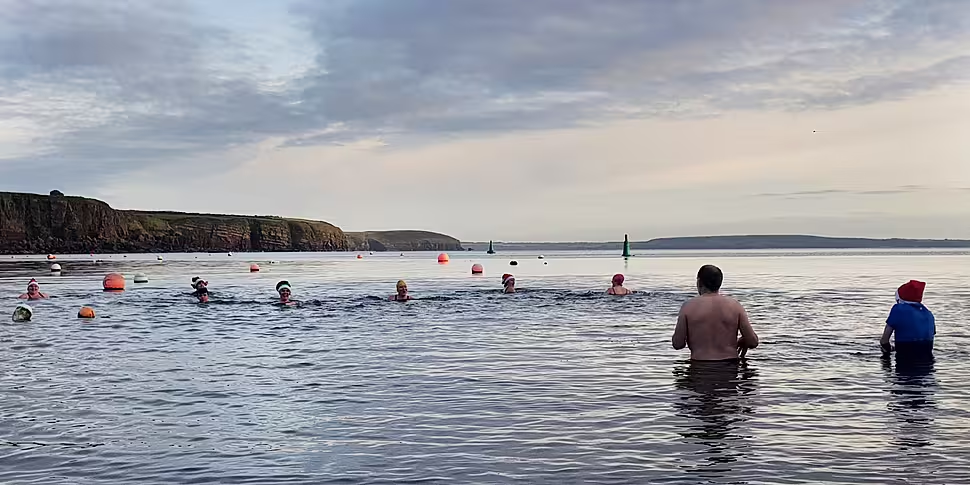Irish sea swimmers could soon benefit from water quality testing all year round.
Scientists in DCU have developed a tool that would allow bathing waters to be tested for bacteria such as e-coli rapidly and regularly.
It comes amid a surge in sea swimming in popular bathing spots such as Salthill in Galway and the Forty Foot in Dublin.
At present, there's only a requirement to monitor water quality during the bathing season - from June to mid-September.
While some local authorities continue testing throughout the year, there are concerns that less regular testing during 'off season' can leave people vulnerable to bacteria when swimming off-season - especially now that many people go swimming no matter what the weather.
The Bathing Water Expert Group is currently investigating the 'national appetite' for increased testing and resources to facilitate year-round swimming, the Local Government Minister Darragh O'Brien has confirmed.
Fiona Regan - Professor in Chemistry at DCU and director of the university's Water Institute - told The Pat Kenny Show they've developed a tool that could help increase testing.
She explained: “For compliance, we need to have the number of bacteria in the water. However, for swimability, we need to check the water every day.
"We’ve developed a sensor called ColiSense which does not measure the numbers… but measures a response that equates to that.
“We can take a sample in the morning from the bathing area… we filter the sample, we add a reagent, wait a short time, and within an hour and a half we have our reading.
“That reading can be pinged using WiFi to a board along the beach, where you can say it’s safe to swim.”
She added there's “no reason why” there couldn’t be multiple samples taken a day, as experts say the water quality can change in some areas over the course of the day.
The tool has been tested with several county councils, and the team is now in the process of looking to commercialise the sensor.
In the meantime, however, Professor Regan said they're eager to have a longer-term, year-round pilot scheme to test water quality.
She said: “It’s really about getting everybody out swimming… we need to get out and monitor."
Current testing
Professor Regan said some councils are 'really good' at ensuring there's year-round monitoring, but it's something they don't have to do.
She said: "The bathing season really is legislated through Europe. The Environmental Protection Agency would collect the data between May and September, and report back to Europe so we can comply with European legislation.
“Outside that though there is no requirement, and it’s really down to the local county council."
Professor Regan said the impact of climate change means weather patterns have changed, and we’re now regularly seeing the likes of ‘problematic’ wastewater overflows due to heavy rainfall.
Other sources of waste and bacteria can include birds and animals.
While these issues are often widely reported during the bathing season, Professor Egan noted there's sometimes less concern about reporting them during winter as there’s no legal requirement to monitor the water quality.









